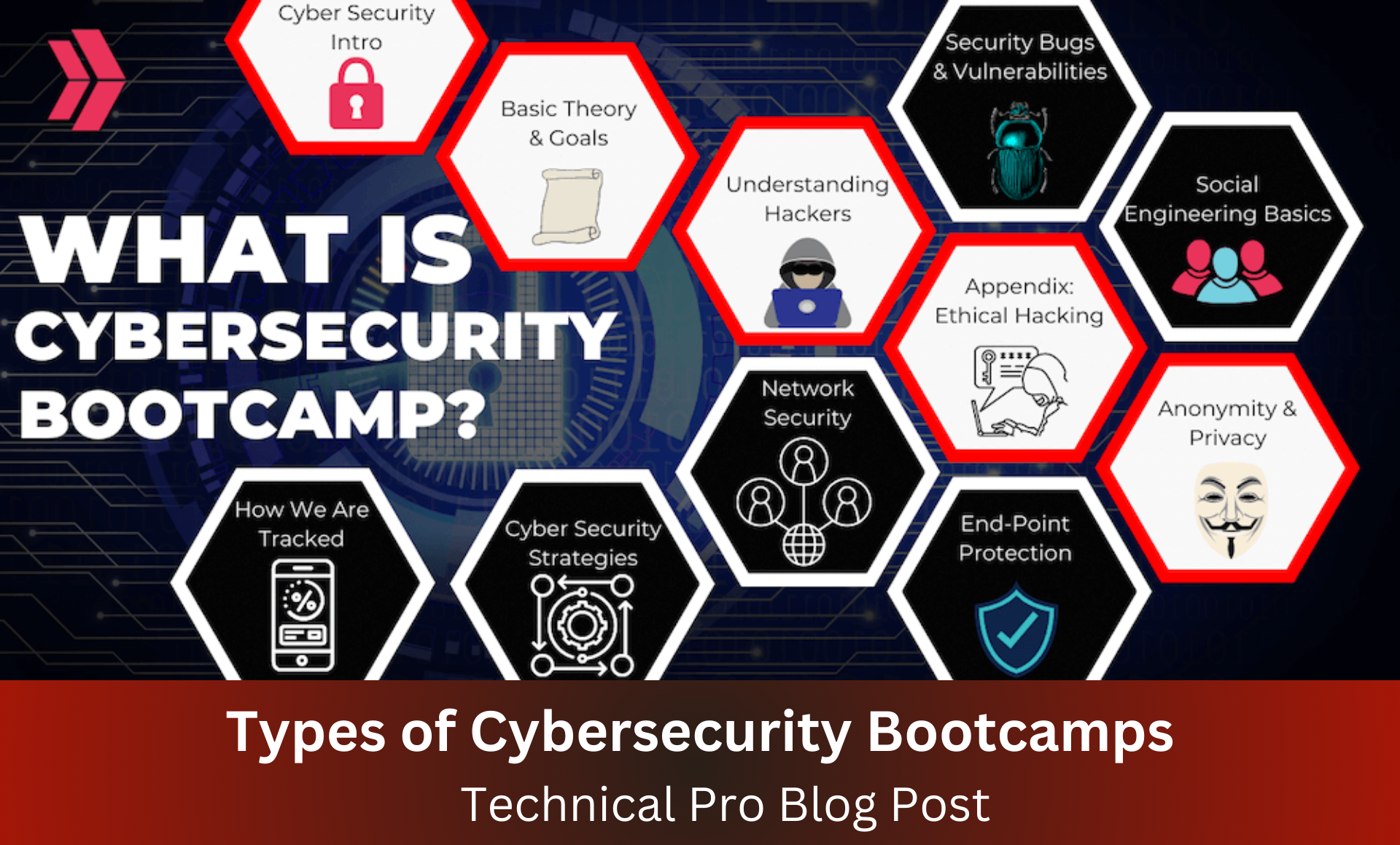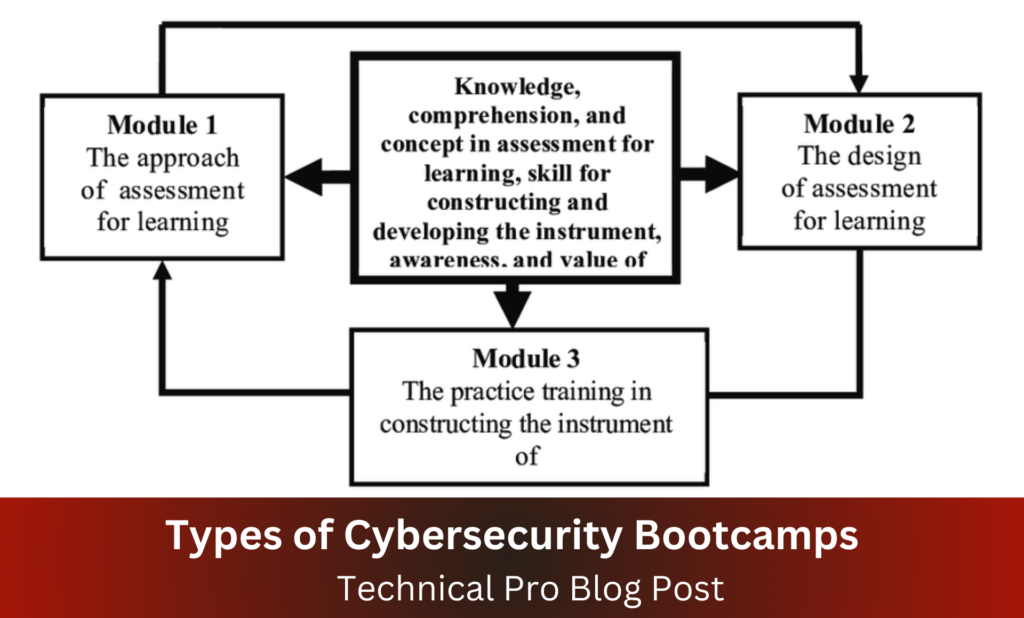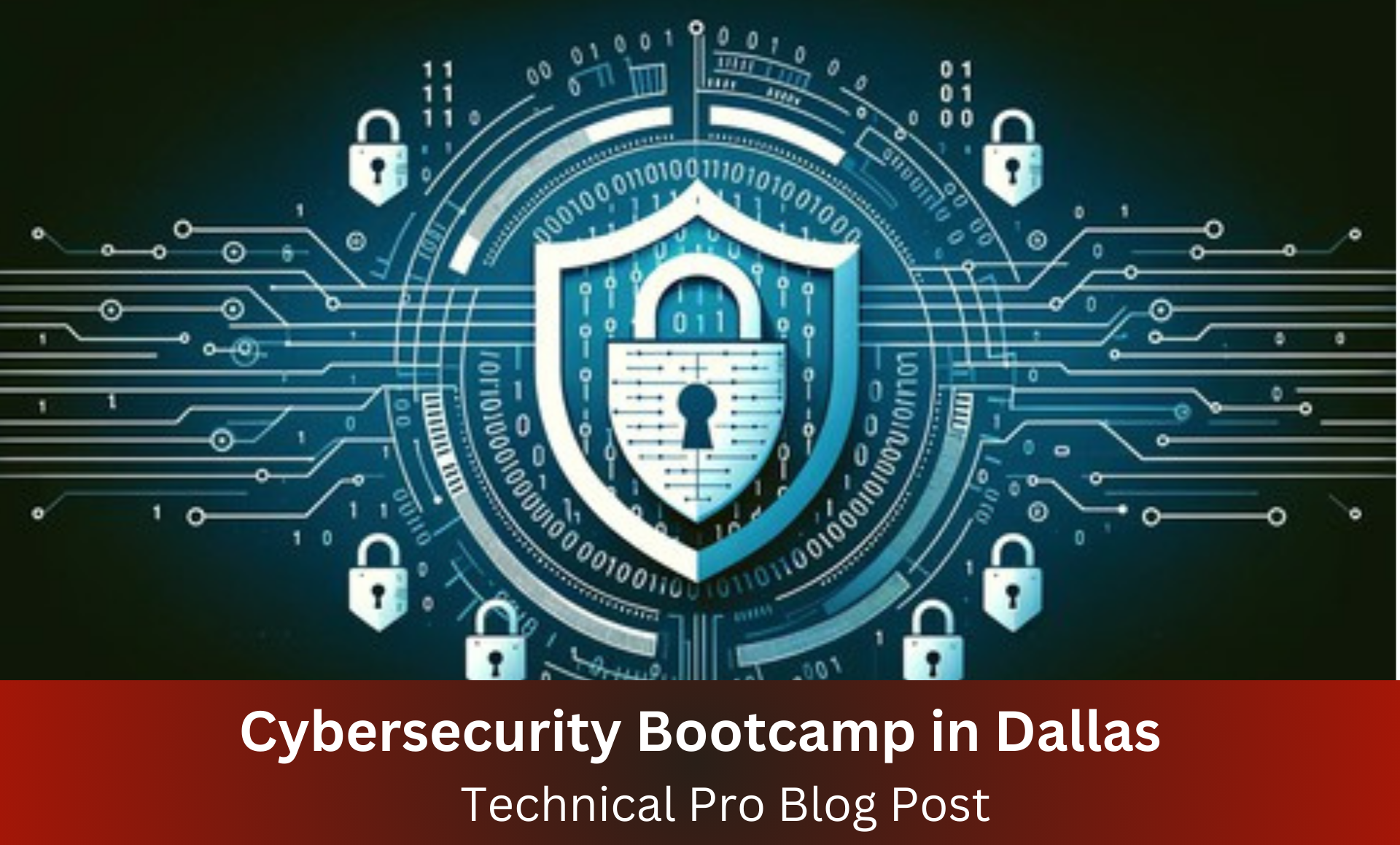In today’s rapidly evolving digital landscape, cybersecurity has become a critical concern for individuals and organizations alike. As the threat of cyber-attacks continues to rise, the demand for skilled cybersecurity professionals has never been higher. For those looking to break into this dynamic field, attending a cybersecurity bootcamp can be a highly effective way to gain the necessary skills and knowledge.
Dallas, a burgeoning tech hub, offers some of the best cybersecurity bootcamps in the nation. This guide will provide you with detailed information on what to expect from a cybersecurity bootcamp in Dallas, how to choose the right one, and the career opportunities that await you upon completion.
Importance of Cybersecurity Education
Cybersecurity education is crucial in today’s technology-driven world. As cyber-attacks become more sophisticated, the demand for skilled cybersecurity professionals is skyrocketing. Cybersecurity bootcamps provide practical, hands-on training that equips individuals with the necessary skills to protect systems and data from cyber threats.
Overview of Cybersecurity Bootcamps
Cybersecurity bootcamps are intensive, short-term training programs designed to teach participants the fundamentals and advanced concepts of cybersecurity. These programs are tailored to both beginners and those looking to advance their careers in cybersecurity. They typically cover topics such as network security, ethical hacking, threat analysis, and security protocols.
Why Choose a Cybersecurity Bootcamp in Dallas?
Dallas is home to a thriving tech scene, with numerous companies ranging from startups to established giants like AT&T and Texas Instruments. This city offers a unique blend of robust job opportunities, competitive salaries, and a vibrant community of tech professionals. Here’s why a cybersecurity bootcamp in Dallas is a smart choice:
- High Demand for Cybersecurity Experts: With cyber threats on the rise, companies in Dallas are actively seeking skilled professionals to protect their digital assets.
- Competitive Salaries: According to recent data, the average salary for a cybersecurity professional in Dallas is significantly higher than the national average.
- Networking Opportunities: Dallas hosts numerous tech conferences, meetups, and events, providing ample opportunities to network with industry leaders and potential employers.
- Quality Education: Dallas boasts several top-tier cybersecurity bootcamps that offer comprehensive, hands-on training.
What to Expect from a Cybersecurity Bootcamp in Dallas
Cybersecurity bootcamps are intensive, short-term training programs designed to equip you with the skills needed to start a career in cybersecurity. Here’s what you can expect:
Curriculum
A typical cybersecurity bootcamp curriculum covers a wide range of topics, including but not limited to:
- Introduction to Cybersecurity: Understanding the basics of cybersecurity and its importance.
- Network Security: Learning about network protocols, firewalls, and intrusion detection systems.
- Ethical Hacking: Gaining skills in penetration testing and vulnerability assessment.
- Cryptography: Understanding encryption methods and their applications.
- Incident Response: Learning how to respond to and mitigate cyber-attacks.
- Regulatory Compliance: Familiarizing yourself with laws and regulations such as GDPR, HIPAA, and PCI-DSS.
Hands-On Experience
Bootcamps emphasize practical, hands-on training. You’ll work on real-world projects, participate in simulations of cyber-attacks, and use industry-standard tools. This experiential learning approach ensures that you can apply what you’ve learned in a real-world setting.
Expert Instructors
Bootcamps in Dallas often feature instructors who are industry professionals with years of experience. They bring real-world insights and practical knowledge, providing valuable mentorship throughout the program.
Career Services
Most cybersecurity bootcamps offer robust career services, including resume building, interview preparation, and job placement assistance. Some even have partnerships with local companies, which can lead to job opportunities upon graduation.
Key Features of Cybersecurity Bootcamps in Dallas
- Comprehensive Curriculum: Covering a wide range of cybersecurity topics.
- Experienced Instructors: Industry experts with practical experience.
- Hands-On Training: Real-world simulations and labs.
- Job Placement Assistance: Support in finding employment post-graduation.
- Flexible Schedules: Options for full-time, part-time, and online learning.
Types of Cybersecurity Bootcamps

Full-Time Bootcamps
Full-time bootcamps are immersive programs that typically run for 12-16 weeks. They require a significant time commitment and are ideal for individuals looking to quickly transition into a cybersecurity career.
Part-Time Bootcamps
Part-time bootcamps offer the same comprehensive training as full-time programs but with a flexible schedule. These are perfect for working professionals who want to enhance their skills without leaving their jobs.
Online Bootcamps
Online bootcamps provide the flexibility to learn from anywhere. These programs often feature live sessions, recorded lectures, and interactive labs, allowing participants to learn at their own pace.
Notable Cybersecurity Bootcamps in Dallas
1. Flatiron School
Flatiron School offers a rigorous cybersecurity program that covers both offensive and defensive security. Their curriculum includes modules on network security, system security, and Python programming.
2. SMU Professional and Online
Southern Methodist University offers a cybersecurity bootcamp that focuses on practical skills and includes modules on risk management, ethical hacking, and security operations.
3. SecureSet Academy
SecureSet Academy provides a comprehensive cybersecurity program with a focus on hands-on experience. Their courses cover areas such as threat analysis, cryptography, and intrusion detection.
Admission Process
The admission process for cybersecurity bootcamps typically involves an application, an interview, and sometimes a pre-course assessment. Applicants are evaluated based on their background, motivation, and readiness for intensive learning.
Curriculum and Training Modules

Network Security
Participants learn about securing network infrastructure, implementing firewalls, and detecting intrusions.
Ethical Hacking
Training on ethical hacking techniques to identify and fix vulnerabilities before malicious hackers can exploit them.
Threat Analysis
Methods for analyzing and mitigating threats to systems and data.
Cryptography
Understanding the principles of cryptography and how to apply them to secure communications.
Security Protocols
Learning about various security protocols and how to implement them effectively.
Hands-On Training and Simulations
Hands-on training is a critical component of cybersecurity bootcamps. Participants engage in real-world simulations and labs to apply their knowledge and develop practical skills.
Career Support and Job Placement
Many bootcamps offer career services, including resume building, interview preparation, and job placement assistance. These services are designed to help graduates secure positions in the cybersecurity field.
Certification Preparation
Bootcamps often prepare participants for industry-recognized certifications such as CompTIA Security+, Certified Ethical Hacker (CEH), and Certified Information Systems Security Professional (CISSP).
Success Stories
Case Study: John Doe
John Doe transitioned from a career in finance to cybersecurity after completing a bootcamp in Dallas. Within six months of graduation, he secured a position as a cybersecurity analyst at a leading tech firm.
Case Study: Jane Smith
Jane Smith, a former IT support specialist, enhanced her skills through a part-time bootcamp. She now works as a penetration tester for a cybersecurity consulting company.
Financial Considerations
Tuition Costs
Tuition for cybersecurity bootcamps can range from $7,000 to $20,000. Many bootcamps offer financing options and payment plans to make the programs more accessible.
Scholarships and Grants
Various scholarships and grants are available for eligible participants, helping to reduce the financial burden of bootcamp tuition.
ROI of Cybersecurity Bootcamps
The return on investment for cybersecurity bootcamps can be significant, with graduates often securing high-paying jobs in a short period.
Emerging Trends in Cybersecurity
Artificial Intelligence and Machine Learning
AI and machine learning are increasingly being used to enhance cybersecurity measures, from threat detection to incident response.
Blockchain Technology
Blockchain offers new ways to secure transactions and data, providing additional layers of security in various applications.
Cloud Security
With the shift to cloud computing, there is a growing need for professionals skilled in securing cloud environments.
Challenges in Cybersecurity Education
Keeping Up with Rapid Changes
The fast-paced nature of cybersecurity requires continuous learning and adaptation to new threats and technologies.
Balancing Theory and Practice
Effective cybersecurity education must strike a balance between theoretical knowledge and practical skills.
Future of Cybersecurity Bootcamps
The demand for cybersecurity professionals is expected to continue growing, driving the evolution and expansion of bootcamp programs to meet industry needs.
Additional Resources
- Check out more on Tech Blog Post News.
- Explore cybersecurity internships in Atlanta here.
External Links
- CompTIA Security+ Certification
- Certified Ethical Hacker (CEH)
- Certified Information Systems Security Professional (CISSP)
Related Articles
- Learn more about the latest in tech news.
- Discover opportunities in cybersecurity internships.
Conclusion;
Cybersecurity bootcamps in Dallas offer a valuable pathway to a rewarding career in a rapidly growing field. With comprehensive training, hands-on experience, and robust career support, these programs equip individuals with the skills needed to protect against ever-evolving cyber threats.
FAQs;
1. What are the prerequisites for joining a cybersecurity bootcamp?
Most bootcamps do not require prior experience in cybersecurity, but a basic understanding of IT concepts can be beneficial.
2. How long do cybersecurity bootcamps typically last?
Bootcamps can range from 12 to 24 weeks, depending on whether they are full-time or part-time.
3. What kind of jobs can I get after completing a cybersecurity bootcamp?
Graduates can pursue roles such as cybersecurity analyst, penetration tester, security consultant, and more.
4. Are online cybersecurity bootcamps as effective as in-person ones?
Online bootcamps can be just as effective, provided they offer interactive and hands-on training components.
5. How much can I earn after completing a cybersecurity bootcamp?
Salaries vary, but cybersecurity professionals often start with salaries ranging from $60,000 to $90,000 annually.
